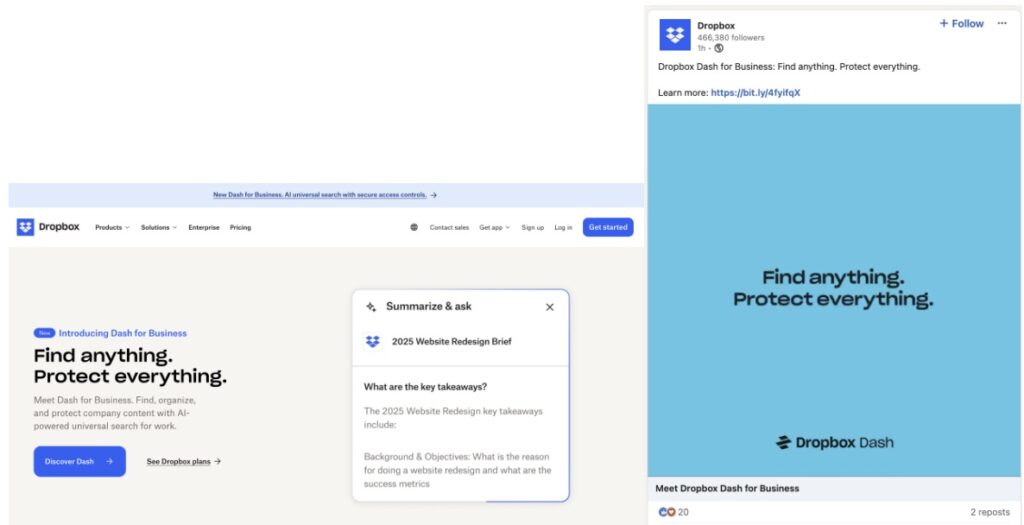When a customer trusts your company, they have confidence in your solution and in the relationship itself. Trust is always earned. And in today’s political and social climate—where trust in key institutions is eroding —this business fundamental takes on greater significance when it comes to accelerating change and operational success.
As a B2B marketer, you already believe in the power of content to drive sales and nurture buyer trust at each step of the buyer’s journey. But to build meaningful trust in today’s fractured environment, you must think beyond the transaction, beyond the buyer’s journey. Your digital content must establish B2B trust in new and deeper ways.
Forrester’s 7 Levers of Trust
In 2021, Forrester held its annual B2B Summit North America. A fascinating session, “Building Trust: The B2B Imperative,” outlined seven levers of trust that companies should invest in to build and maintain trust with buyers. These key levers of trust still remain true today:
- Accountability
- Competence
- Consistency
- Dependability
- Empathy
- Integrity
- Transparency
Forrester explored how these seven qualities can give organizations a competitive advantage by decreasing buyers’ sense of risk. This framework got us thinking about how B2B marketers can activate these levers. We have some ideas and—big surprise—they’re focused on content’s role in the user’s digital experience.
Content Strategies for Building B2B Trust with Customers
As you build out your digital strategy, assess which levers of trust matter most to your organization. Think about trust from your customers’ perspective:
- What does it take for them to consider you worthy of their business?
- What aspects of trust are most important to maintaining a long-term relationship?
Every piece of content you develop is a building block of trust. Consider these content approaches to convey the seven levers of trust. Some of them draw from existing B2B content marketing best practices, while others take a broader, strategic approach beyond the buyer’s journey.
B2B Trust Lever #1: Accountability
Public relations and crisis communications specialists understand accountability as taking responsibility when things go wrong and communicating how you’ll make it right. But marketers should also communicate a sense of accountability to the customer as well as to communities and society as a whole.
- Listen and respond to customer needs: When describing your products and solutions, for example, explain how you have responded to customer needs over time and adapted your offerings. Show that you’re listening and will continue to listen.
- Take a stand, communicate values: Invest in thought leadership content from your executives. Articulate organizational values and speak frankly about major societal challenges and how “doing the right thing” goes beyond the bottom line. Be aware of your audience’s careabouts and concerns—and take them seriously.
- According to the 2024 Edelman Trust Barometer, 82% of respondents say being given a voice is important to earning or keeping their trust in institutions as good managers of change.
- Back in the wake of the George Floyd protests of 2020, prominent CEOs—including Cisco’s Chuck Robbins and Intel’s Bob Swan—spoke out. Their communications strategies connected the dots between new commitments in light of events, and long-time company values—all of which engendered trust in their followers.
B2B Trust Lever #2: Competence
This is a big one, obviously. Your content needs to truly demonstrate that your offerings solve real problems and deliver exceptional results.
- Tap third parties: Traditionally, marketers showcase online reviews, third-party analyst reports, and customer testimonials to tell the story of competence and capabilities, since those voices are more trusted by prospective buyers.
- Be genuinely helpful: Position your company as a trusted expert by creating top-of-funnel content that addresses buyers’ questions and describes innovations and best practices—without pitching your product. That’s the essence of modern SEO content. Then increase brand awareness by participating in industry conversations via forums, webinars, and guest articles that show customers you are truly invested in your industry.
B2B Trust Lever #3: Consistency
Do you consistently deliver great results? As buyers get to know your brand, remind them of these achievements, but also take a broader view of consistency:
- Communicate regularly via key channels: According to a 2023 McKinsey study, B2B companies that provide the best omnichannel experience are improving their market share by at least 10% annually. Be part of the conversation with what McKinsey calls a “sophisticated digital customer experience—especially by leveraging social media, mobile devices, and texting early in the buying process.” Communicate consistently via other customer-preferred channels as well, with regular emails and blog posts.

- Create a consistent content experience: Is your content’s voice and tone consistent across channels and formats? Does your website information architecture organize content consistently and make it easy for visitors to find what they need? A positive content experience helps to subtly build trust, familiarity, and confidence.
B2B Trust Lever #4: Dependability
Tout your track record of dependability. Your messaging should emphasize that you will help customers solve their challenges today—and are ready to help address new ones down the line.
- Share a variety of success stories: Show how companies of all stripes depend on you. Analyze your library of case studies—and your logo wall of prominent customers—to ensure that they are adequately diverse. Include examples of customer wins across industries and businesses of different sizes.
- Highlight dependable people: “Business-to-business” is ultimately “people-to-people,” so use content to spotlight your dependable employees—from executives and sales reps to product engineers and customer success agents—that are all ready to assist. Quote your company advocates in blog posts, share their headshots and bios in articles, and feature them in videos.
B2B Trust Lever #5: Empathy
People trust companies that are genuinely invested in their success. Find ways to make an emotional, authentic connection with your content, building rapport and relatability.
- Capture the voice of the customer: Speak your customers’ language and use their phrasings in content that vividly describes their pain points and challenges. You want them to say, “Yes, this company gets me.” And you want them to understand that you are here to help. The best content creates these authentic connections.
- Get personalization right: To make a genuine connection with a customer or account, leverage one-to-one personalization whenever feasible. According to Deloitte Digital’s June 2024 report on personalization, business leaders reported a 54% improved conversion rate as a result of personalization. Instead of generic messaging, create emails or presentations that show you took the time to understand someone’s priorities and challenges because they matter to you. Account-based marketing scores its biggest wins this way.
B2B Trust Lever #6: Integrity
A reputation for integrity and authenticity is hard-earned. Protect and burnish your company’s integrity with content that speaks the truth and conveys company values.
- Check facts and cite sources: Too many marketers make unsubstantiated claims or repeat statistics they found on other websites. Companies with integrity take fact-checking seriously and understand its role in building long-term trust.
- Avoid fearmongering: There’s a difference between messaging that creates a sense of urgency and necessity for a product versus messaging that deliberately exaggerates fear and uses gimmicks to win the short-term sale.
B2B Trust Lever #7: Transparency
Informed buyers demand transparency about everything from pricing to internal processes.
- Communicate the how and why: In blog posts and videos, share the background and rationale for key decisions on product launches, changes, and discontinuations. To build trust, give buyers a window into your process and corporate strategy.
- Create rich “About” pages: Make it easy for buyers to learn everything they can about your company. Craft an About section of your website that humanizes your history, values, leadership, work culture, and corporate social responsibility. (Bring the same transparency to your privacy page, by the way.)

Where Does Trust Fit Among Marketing Priorities?
Do most marketers care enough about building trust with customers? Hard to say. What we do know is that B2B buyers try to avoid risk at all costs since they are buying on behalf of their company. In that sense, building B2B buyer trust is crucial. According to Forrester, “B2B buyers who trust a company are almost twice as likely to recommend that company externally or to pay a premium to work with that company than those who do not trust a company.”
The bottom line? B2B marketers must prioritize building trust with their customers. That said, there is still a scarcity of trust in the world. Businesses have a rich opportunity to fill that void, and marketers can contribute by investing in content that strengthens trust beyond transactions.
Need Help Developing a Content Strategy that Resonates with Customers?
Tendo offers content strategy and planning services as well as content creation services to help you create authentic content experiences that reflect your brand values and connect with your customers. Contact us today to discuss your needs.
First published June 23, 2021










